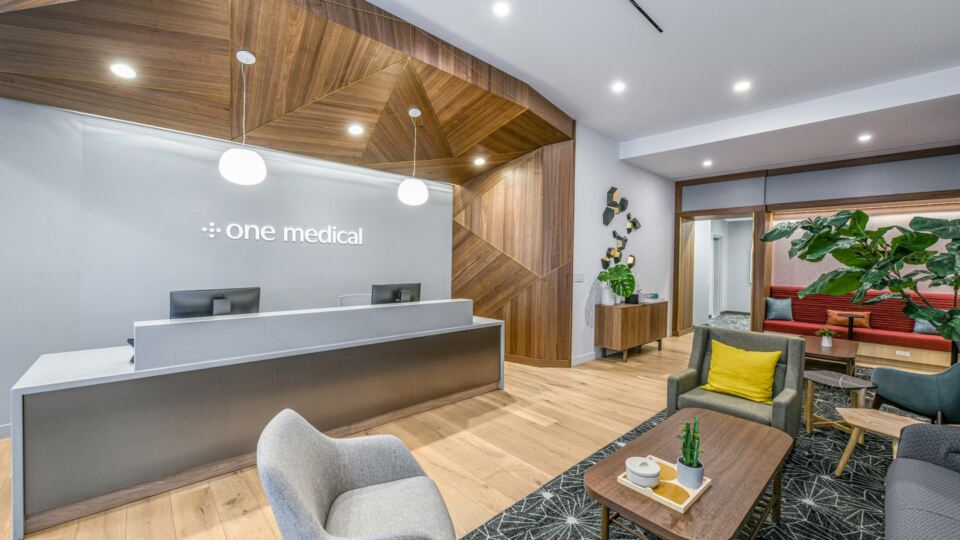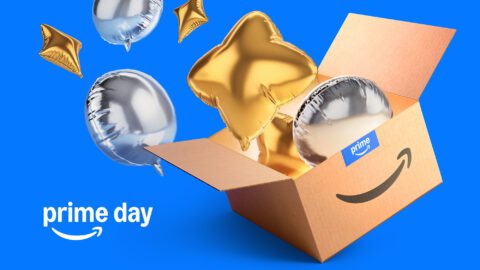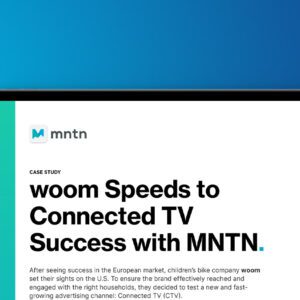Amazon has agreed to acquire healthcare tech company One Medical for $3.9 billion as the race to lead the “medtail” movement continues to heat up among retail’s biggest players.
One Medical is a national primary care technology solution that aims to make healthcare “more affordable, accessible and enjoyable” by offering a combination of conveniently located in-person sites as well as digital and virtual care services.
“We think healthcare is high on the list of experiences that need reinvention,” said Neil Lindsay, SVP of Amazon Health Services in a statement. “We love inventing to make what should be easy, easier and we want to be one of the companies that helps dramatically improve the healthcare experience over the next several years. Together with One Medical’s human-centered and technology-powered approach to healthcare, we believe we can and will help more people get better care, when and how they need it.”
“The opportunity to transform healthcare and improve outcomes by combining One Medical’s human-centered and technology-powered model and exceptional team with Amazon’s customer obsession, history of invention and willingness to invest in the long term is so exciting,” said Amir Dan Rubin, One Medical CEO, who will remain in the role once the acquisition is complete.
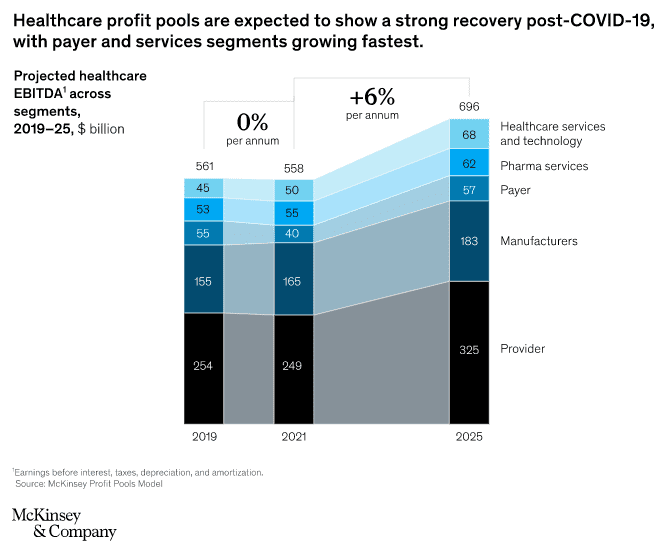
But altruism isn’t the only reason Amazon and other high-profile retailers including Walmart, CVS, Walgreens and Best Buy are scrambling to get into healthcare — high profit margins are also a draw. McKinsey & Co. predicts that healthcare industry EBITDA will grow 6% between 2021 and 2025, adding approximately $31 billion in profits.
It’s a move that Scott Galloway, Clinical Professor of Marketing at the NYU Stern School of Business, has predicted for years. “Basically every CEO has to be able to convince investors their stock price has a good chance of doubling in five years,” explained Galloway in a 2020 interview with GeekWire. “For Amazon to do that, even if they get operational leverage, they’re running into the law of big numbers, which means they probably have to add somewhere between $150 billion or a quarter of a trillion dollars in top-line revenue — add that — in the next five years. That helps us predict what businesses they are going into.
“What does Amazon do? They come into an industry and they raise trust and satisfaction,” Galloway added. “And if you look at the industry where all roads lead to — high margin, huge industry, lack of consumer satisfaction — all roads lead to the same place. That’s healthcare.”
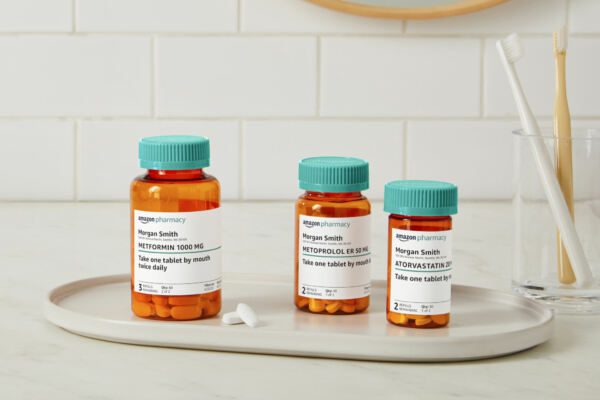
Amazon has been on that road since 2018, when it acquired prescription-by-mail company PillPack. Since that time the company has launched Amazon Pharmacy, which allows customers to fill prescriptions online, with free two-day delivery for Prime members (of course), and introduced Prime Rx, which offers prescription savings of up to 80% for customers without insurance. Amazon Pharmacy also introduced low-cost six-month prescriptions just one day after Walmart debuted a similar program in 2021.
Not all of Amazon’s previous attempts to disrupt the healthcare industry have gone as planned. Haven, the company’s joint venture with Berkshire Hathaway and JPMorgan Chase that aimed to tackle the high cost of healthcare, was disbanded after three years.
In the realm of primary care offerings, Amazon is clearly hoping the One Medical acquisition will help it catch up to other retailers that have been advancing similar services for years:
- CVS acquired Aetna in 2017 and has since rolled out a suite of healthcare services, including continued expansion of its HealthHub and MinuteClinic health and wellness centers;
- Earlier this year, Walmart announced plans to add five new Health Centers that provide a range of medical services including primary care, labs, X-ray and EKG, behavioral health and counseling, dental, optical and hearing. The first Walmart Health center opened in 2019;
- Walmart also entered the health insurance sector in 2020 with the debut of Walmart Insurance Services;
- In October 2021, Best Buy acquired care-at-home technology platform Current Health, which combines remote patient monitoring, telehealth and patient engagement into a single solution for healthcare organizations; and
- Rite-Aid teamed up with Homeward earlier this year to enable its pharmacists to help connect underserved seniors in rural communities with providers and clinical services.




